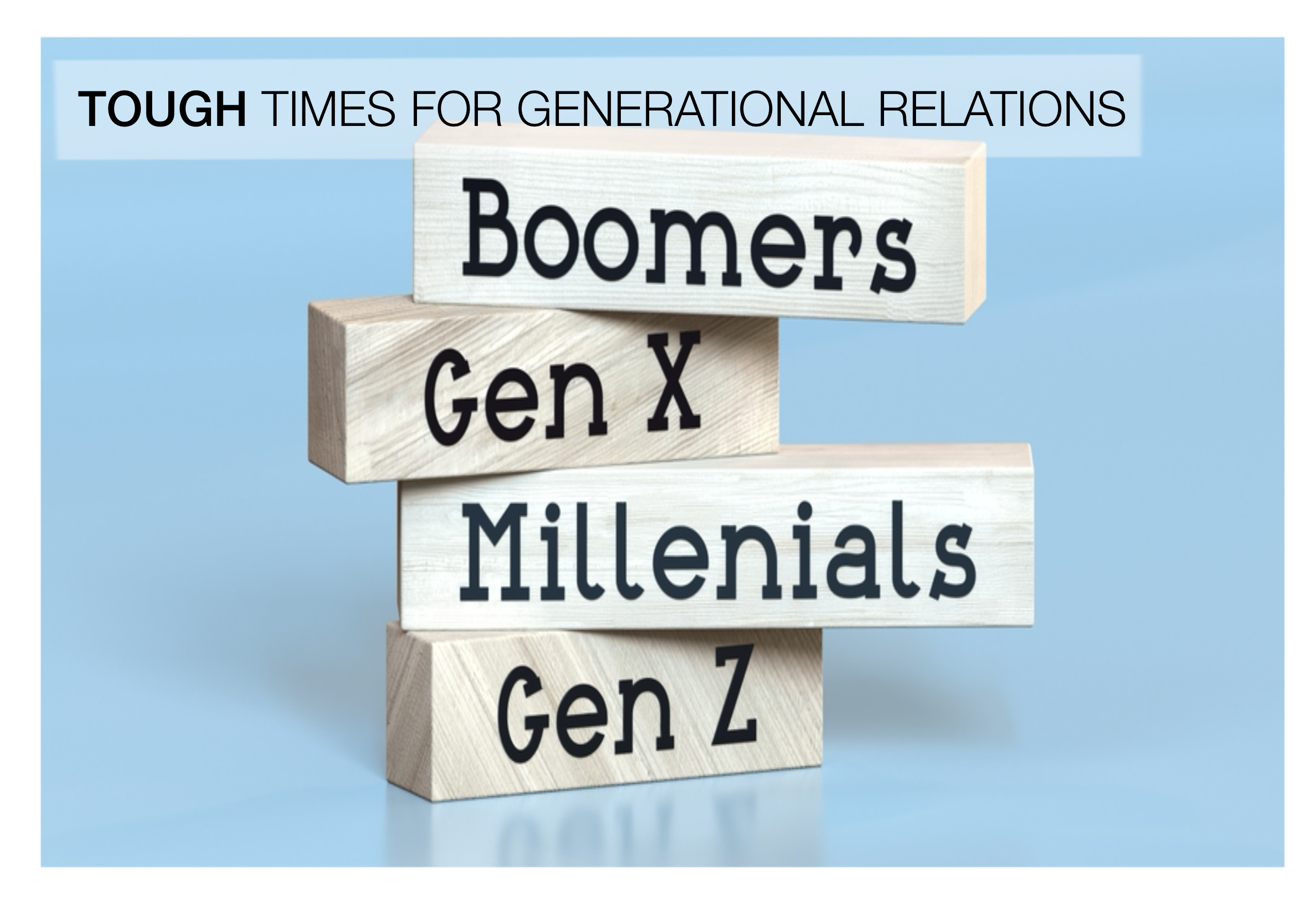It’s a tough time for the generations to just get along. Millennials (born 1981 to 1996) chide both Baby Boomers (born 1946 to 1964) and Gen Xers (born 1965 to 1980) for everything from environmental degradation to war, famine, infighting, and the general state of affairs both on a global and national level.
The Baby Boomers and Gen Xers see Millennials as disconnected from life and society, and the two might be spot on in their assessment. With their noses buried in smartphones and other devices that seem to be both a distraction and separating, Millennials are young in their careers and their lives, they have much to lose.
Aged between 22 and 37, Millennial “digital natives” were born into and raised amid an infusion and alluring addiction to the always-connected online lifestyle. This includes social media, the metaverse and video games, leaving them disengaged from society and so much more.
At the same time, Gen Xers and Boomers often pride themselves in being the last generation to play and explore outside, in the parks and streets until the streetlights came on. Any use of video games were those on such platforms as Sega, Atari or Nintendo’s initial efforts – which by today’s standards are considered basic at best and far less entrenched in their daily lives.
Whether in work or life, Millennials’ “anti-communication” and the resulting detachment is detrimental to interpersonal relations and future opportunities. This includes mentorship and most importantly personal development, which will impact future generations.
Some might read this and scoff, “OK Gen Xer.”
Such division and derision hampers any effort to improve communications that might bridge our gaps. There’s a lot to be said about the communications built during days spent with friends IRL (in real life).
To be clear, addiction to smart devices isn’t exclusive to the younger generation. People of all ages and circles, whether in personal life or the workplace, are talking less, relying instead on email, or worse, texts, to hold some minimalist micro-chats. Therein lies many of the issues society faces today. Even when people talk, they’re not communicating. They’re entrenching. Resentment results in words falling on deaf ears. People are hiding behind the anonymity of emails, texts and social media.
Think about all the protests we’ve seen in recent years. No matter the issue – race relations, gender equality, the Israel-Palestinian conflict – people are protesting and counter protesting.
And that’s very sad. We will never resolve our problems if we rely on TikTok for our truths; how do we know what’s a lie and what’s an algorithm?
What is society to do?
Follow the example of Boomers. Older individuals tend to take a different tack. When conflicts arise, older generations tend to meet face-to-face to seek solutions or hammer out resolutions. Raised by the “greatest generation” – those who served in World War II and Korea – we learned lessons first hand from them the strengths of conflict resolution.
We’ve addressed this many times before. The answer, at least to me, starts young and lies in the family gatherings. These can come at the kitchen or dining room table, whilst spending alone time in the car with ample opportunity to converse, or in formal family meetings.
These open conversations, with smartphones and distraction out of reach, do more than encourage the younger generation to share their thoughts and emotions in a conflict-free setting where there are no “wrong” answers. Those topics not agreed upon are explored further as a chance to impart a teaching moment.
In a recent conversation, my daughter thought my perspective on the topic at hand was offensive. I replied, “I’m happy you’re offended. This means we are having a conversation.” No, I didn’t shoot down her argument; instead I asked her to prove me wrong. This wasn’t a fight; it was civil and engaging.
More importantly, these meetings help generations prepare for discussions in less “safe” environments – with teachers and classmates, strangers in social settings, and workplace supervisors and coworkers.
We need to get back to such discussions. In other cultures, arguments among family, peers and coworkers may get heated. But they often end amid congeniality, where parties “agree to disagree.”
We all could benefit from being less thin skinned, seeing the merits of others’ points of view, or just understanding that disagreements aren’t relationship killers. We need to learn from being wrong, and gloat less when convinced we’re right.
If your family or workplace finds cross-generational discussions degrading into arguments that threaten relationships, or your next generation could use the perspective of a neutral boomer, maybe a mediator could help. In my 30-plus years of working amidst Global 500 and among high-net-worth individuals and family offices, I’ve helped sides explore conflict and find resolutions. We may disagree. But we don’t have to end as enemies.

Leave A Comment